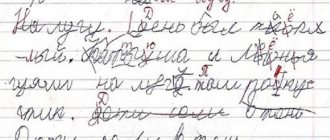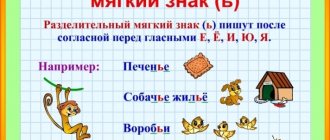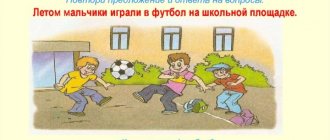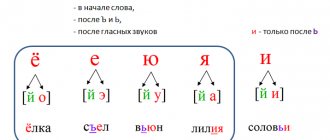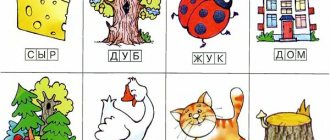In the Russian language there are many words that are difficult to pronounce: terms borrowed from foreign languages, names of drugs, specific scientific vocabulary, names of professions, etc. When communicating at the everyday level, such words do not cause any special problems. You can always replace them with simplified vernacular synonyms or, as a last resort, laugh at the fact that you were unable to pronounce them correctly. However, delivering an official speech or report usually forces the speaker to adhere to strictly defined terminology and operate with the most precise concepts. You can learn how to deliver a speech beautifully, including how to avoid stumbling over complex terms, in public speaking courses from the Benefis theater studio. In our classes, we purposefully take complex combinations of sounds, words and phrases and train to pronounce them correctly. In the future we will include exercises for diction with cork. Over time, even a cork in the mouth ceases to interfere with correct pronunciation. How to master basic acting and public speaking skills? Answer 4 short questions and we will select the optimal curriculum
The most difficult words to pronounce in Russian
When determining the “difficulty” of a word, you can be guided by the number of letters and the number of words from which it is composed, since the longest words are compound ones. Let's consider the hard-to-pronounce words of the Russian language that hold the record for the number of letters in various categories.
From the Guinness Book of Records:
- Overly considerate is the longest word in the Russian language.
- X-ray electrocardiographic – previous record.
From the grammatical dictionary of the Russian language by A. A. Zaliznyak:
- Privately owned is the longest word.
- Re-examine, substantive, internationalize - record-breaking verbs.
- Misanthropy, Excellency are nouns.
- Eleventh grader, clerk - animate nouns.
- Unsatisfactory – adverb.
From the Spelling Dictionary of the Russian Academy of Sciences:
- Agricultural and mechanical engineering is an adjective with a hyphen.
- Electrophotosemiconductor is an adjective without a hyphen.
- Rooter-bulldozer-loader, animation-inanimateness are nouns with a hyphen.
- Water-mud-peat-paraffin treatment is a noun without a hyphen.
Difficult to pronounce phrases in English
Of course, not everyone has problems with speech and diction , and not everyone dreams of the glory of Demosthenes, or simply becoming an announcer on a television or radio station; many are more than satisfied with their speech, without interfering with their life and work at all. But when studying foreign languages, in particular English, it is absolutely necessary to pronounce difficult-to-pronounce phrases in the target language as often as possible, because this is the best way to learn to speak without hesitation, with the necessary diction and accent.
Of course, tongue twisters in English are also suitable for those who simply want to develop their speech apparatus as much as possible, because the presence of a large number of sounds uncharacteristic of Russian speech perfectly trains diction.
Tongue twisters in English:
- Can you imagine an imaginary menagerie manager managing an imaginary menagerie?
- She sells sea shells at the sea shore, the shells she sells are the sea-shore shells, I'm sure.
- How much wood would a woodchuck chuck if a woodchuck could chuck wood?
- Any noise annoys an oyster but a noisier noise annoys an oyster most.
- Whenever the weather is cold. Whenever the weather is hot. We\'ll weather the weather, whatever the weather, whether we like it or not.
- Peter Piper picked a peck of pickled peppers. A peck of pickled peppers Peter Piper picked. If Peter Piper picked a peck of pickled peppers, Where\'s the peck of pickled peppers Peter Piper picked?
- When a doctor doctors a doctor, does the doctor doing the doctoring doctor as the doctor being doctored wants to be doctored or does the doctor doing the doctoring doctor as he wants to doctor?
How to learn to pronounce difficult words
- Development of the articulatory apparatus.
- Working with speech material.
Development of the articulatory apparatus
Each word is a combination of sounds and their combinations: the more combinations, the more difficult it is to pronounce the word. To master a word, you first need to develop the pronunciation of first each sound individually, then each combination of sounds found in this word. The “from simple to complex” method can be used to master the desired word in the shortest possible time, but it is best to practice the articulation of different sounds daily as exercise. You can comprehend this technique by first pronouncing difficult words starting with the letter A, then starting with the letter B, etc. Articulatory gymnastics allows you to keep your speech apparatus in good shape: daily exercises are guaranteed to save you from difficulties with new tricky words. To do this, it is enough to do a light warm-up of the facial muscles and slowly, carefully pressing and articulating each sound, read aloud any passages of text and words that are difficult to pronounce.
Working with tongue twisters (speech material)
When the speech apparatus is sufficiently developed and you can easily pronounce any combination of sounds, in particular complex words with the sound R, it’s time to work on automation. The best way to do this is with regular tongue twisters. Their diversity will allow you to identify the most problematic letter combinations and work hard on them. The main thing is not to try to pronounce tongue twisters quickly; it is much more important to pronounce them clearly, focusing on the most difficult words. Speed always comes with technology. You can test your strength by pronouncing such difficult tongue twisters: Mom didn’t spare soap Mom Mila didn’t like soap Mila didn’t like soap Mila dropped Osip was hoarse, and Arkhip was hoarse Osip, and Osip was Osip Osip Arkhip, and Osip was hoarse Arkhip was hoarse, and Osip was hoarse.
How to make your voice strong and confident? We will teach this and other skills in our public speaking course. Come to public speaking courses at the Benefis theater studio. We will teach you:
- How to remove clamps and loosen up
- How to learn to improvise
- How to use the camera
- How to work with your spectrum of emotional states
- How to make your voice strong and confident
And much more. Choose the most convenient format of classes for yourself. We conduct training courses in two formats: “Online” and “Offline” in the center of Moscow.
Why train salespeople’s speech?
Learning to speak correctly is not at all difficult if you take this issue seriously. To begin with, you can ask yourself the question: how does communication happen in general? How to build a dialogue correctly? The answer is simple. Communication needs to be broken down into parts. The method proposed by the famous psychologist Albert Mehrabian is well known. He proved that the flow of information from one interlocutor to another consists of three components - three communication channels.
- Channel One: the content of speech, its meaning
- Second channel: voice intonation, paralinguistics
- Third channel: postures, gestures, facial expressions, body language
Maximum attention should be paid to the content of the speech. The salesperson needs to consider the stages of selling such as identifying needs, arguing, objections and responses. And you definitely need to monitor the mood of your speech, it should be positive and confident! For a more convincing speech, you can use words such as activity, quality, beauty, originality, recommendations, success, purity, value, economy, effect, reliability and so on.
The next stage is paralinguistics, a branch of linguistics that studies facial expressions and gestures that accompany spoken speech. The length of the phrases used by the seller is of great importance. They can be short or long. As a rule, in business communication short phrases are more effective because they sound clearer, more convenient and easier to understand. The tone of the voice also plays a significant role. A good salesperson is expected to have good command of his voice, its nuances, pauses and intonations. To learn this, you need to practice in front of a mirror, record your voice on a voice recorder, and work on your diction. Attending trainings led by professionals in this field will also help you speak confidently and convincingly.
The third, most difficult channel is body language. It is very important because it includes everything: gait, posture, gestures, facial expressions, glances, distance and appearance. It's not that difficult to speak beautifully. But to control postures, movements and facial expressions... You need considerable effort, attentiveness and endurance.
A salesperson needs to train his speech every day and constantly improve in the art of persuasion. But why? It's simple - the right speech helps increase sales.
The most difficult words in Russian and how to remember them
Foreign languages are not easy. Even the most of them will cause a lot of difficulties for those who want to study it. Yes, and even among polyglots who master them faster than others. Any person will have difficulties: in pronunciation, spelling, understanding. Many words cannot be mastered not only after minutes, but even after hours of practicing and memorizing them. The clear leader in such words is the Russian language. Foreigners who take up the “great and mighty” cannot master many words. But don’t rush to get upset, almost all of them end up on the list of losers, but only thanks to colossal effort and regular training. Today we will introduce you to the words that cause the greatest discomfort among foreign guests.
Hello
Just started learning Russian? Be prepared to be faced with a difficult word from the very beginning. “Hello” is a greeting, the same as “hi”, “hello”, “salut”. Agree, it is difficult to pronounce and write even for native speakers, what can we say about language learners.
Long words
“Eleventh grader”, “respectively”, “self-employed”, “unsatisfactory”, and so on. Not everyone can even pronounce them correctly the first time, let alone remember them. As practice shows, the best friend in this case is only regular training. It’s not for nothing that there is a proverb in the Russian language: “Repetition is the mother of learning.”
Best"
“The best”, “the best”, “the best” - what variations of this word do Russians encounter when communicating with a foreigner! The superlative degree of the adjective “good” is one of the words that is not so easy to come by.
Lighter
Regardless of whether you smoke or not, there is a possibility that you will need a lighter. Many foreigners end up asking for “fire,” which makes Russian speakers laugh. Even if they understand you, you still need to remember this separate word that was invented for this.
Bread
Bread is the head of everything. This is the most important dish on the table of a Russian person. For a foreigner who has begun to study Turgenev’s language, bread is one of the most difficult words to pronounce, despite the small number of letters. People who, after long training, still say “bread” correctly, rejoice like children and already consider themselves conquerors of the Russian language.
Verbs related to movement
In Russian you can’t say “Go!” and everything will become clear. All these “go”, “drive”, “enter”, “reach”, “go around”, “go out” are difficult both to understand and to pronounce. Foreign citizens learning Russian clearly think to themselves that staying home and not moving is much safer than trying to figure out all these words.
The Russian language is considered quite complex, compared, for example, with German or English, although in terms of the degree of difficulty in pronouncing words, the Scandinavian languages are probably in first place. There are a lot of long words in it. If we talk about the longest, then in the Guinness Book of Records the longest word in the Russian language is declared “X-ray electrocardiographic”, it has 33 characters. This was a record in 1933. And in 2003 it was replaced by a 35-character word - “highly considerate.”
Post-revolutionary lexicon of abbreviations
Immediately after the October Revolution, many new words appeared, starting with the adjectives “pre-revolutionary”, “old regime”. The Bolsheviks renamed all tsarist institutions and created new structures. But the new names turned out to be cumbersome and wordy. In everyday life, they quickly learned to abbreviate them based on the first sounds. With names such as “CheKa”, “TsIK” (“centre executive committee”), it turned out to be pronounceable. But “People's Commissariat of Internal Affairs” (People's Commissariat of Internal Affairs) is quite difficult to pronounce. What can we say about such abbreviations as “goruprmestprom”, “raipromtorgprodtekh”, “administration department”, “Vsekohotsoyuz”, “Glavuprrechtrans”, “Goskomselkhoztekhnika”.
Emblem of the Water Transport Commissariat with an abbreviated name
There is no point in memorizing all these all-Union cooperative hunting unions, river transport departments, and agricultural machinery committees, but you need to learn the principles of abbreviation and decoding. This may be needed when reading the pre-war press, novellas and short stories.
Chemistry is a storehouse of the longest words
Although their leadership is formally recognized - in analytical chemistry there are simply huge names of substances, since they are built according to a certain scheme. For example, the adjective “tetrahydropyranylcyclopentyltetrahydropyridopyridine” consists of 55 letters. Or “methoxychlordiethylaminomethylbutylaminoacridine” - 44 characters.
Another example: the prefix “great-” can be used many times in a concept that denotes the degree of relationship - “great-great-great-great-great-great-great-great-grandfather.” Theoretically, this word can be stretched indefinitely. Word formations from numerals that denote certain quantities can also be extremely long: “one thousand nine hundred and seven hundred and six centimeters” - 43 characters. At the same time, regarding all these examples, philologists are still arguing whether they should be considered the longest words in the Russian language. They are not universally used, and the ability to create endless designs sets them apart from the mainstream.
Complex derivatives from adjectives, numerals, verbs
In the school curriculum, nouns with two roots are considered complex.
The school table of difficult words affects only the upper layer of the language
These examples are simple in pronunciation, memorization, and the rules for using the connecting vowels “O” and “E”. Multi-root nouns and numerals are much more difficult. It is difficult to do without the multi-root words “automotosport”, “aircraft construction”, “electrocardiography”, “private enterprise” in work and everyday life. German students cope best with multi-root nouns (in terms of understanding the rules of composition and remembering long pronunciation). It is difficult to surprise them with such “monsters” as “Die Nummernschildbedruckungsmaschine” (a machine for printing license plates), “Die Verkehrsinfrastrukturfinanzierungsgesellschaft” (a company that finances transport infrastructure).
Multi-component numerals, which are usually used together with units of measurement, are especially difficult to use. You can write them in a simple form - “250th kilometer”, “200,000th visitor”. But when pronouncing and inflecting the expressions “construction of an eight hundred and sixty-meter tunnel”, “came to the bank with six hundred rubles”, difficulties arise not only for foreigners. Verb forms are no less complex when forming participles, gerunds, and verbal adjectives.
THIS IS INTERESTING. A Chinese student posted on the Internet all the derivatives of the verb “to love.” The general list includes 178 verbal forms.
The longest verbs and other parts of speech
If we talk about verbs, then the longest words are “re-examine” and “internationalize”, they have 24 letters each, if you form word forms from them with the ending, for example, “-uyushchie”, you get 25 letters each. The longest nouns – “misanthropy” and “excellency” – also have 24 letters; you can create plural word forms, which will result in 26 letters (although the first word is not used in the plural). Among animate nouns, the words “eleventh grader” and “clerk” have the most letters – 21 each. The longest interjection recorded in Russian dictionaries is “fizkult-hello.”
We are accustomed to the fact that prepositions and conjunctions are short words, but the word “accordingly” falls out of the general series, it has 14 letters. The situation is similar with adverbs - there is only one long adverb “unsatisfactory”, consisting of 19 letters.
Some argue whether nouns and adjectives with hyphens can be considered the longest words in the Russian language, since they are “glued together” artificially, but let’s still pay attention to them: in the word “agricultural-machine-building” there are 38 characters, and in “rooter” -bulldozer-loader” – 31. Similar words include the adjective (albeit without a hyphen) “electrophotosemiconductor” – 28 characters and “water-mud-peat-paraffin treatment” – 29 characters. The longest food word formation – out of 38 characters – is “bread sausage, kindly productive”. The word is funny, but at the same time noted in an authoritative source - the spelling dictionary of the Russian Academy of Sciences (chief editor V.V. Lopatin).
Old Slavic, Church Slavonic, pre-revolutionary archaic
We have already mentioned the greeting “hello”. The form used for greeting remains the only one from the verb “hello”, and is therefore difficult for foreigners to understand. Among the words that are still used, but have already been fairly forgotten, we can mention:
- knight;
- bite;
- upper room;
- jug;
- lively;
- outpost;
- eminent;
- rattlesnake;
- red price;
- poppy;
- arrears;
- throne;
- rags;
- mansions.
They are not difficult to pronounce, but the meaning of some words has changed. For example, a “crawler” was a ceremonial carriage, but now they call an old car that contemptuously. Even literate people are forced to turn to the dictionary when writing the noun “dishes”. Those who are confident in their literacy often write “things”. But among the ancient Slavic words that have entered the modern lexicon, there are also difficult ones to pronounce (especially by foreigners) - “to your heart’s content”, “passion”, “splash”, “to emerge”, “to stick in”.
Few words have been preserved from Church Slavonic vocabulary. Even the alphabet and writing have changed.
14 letters from this alphabet are no longer used
The letters “zelo”, “onic”, “ot”, “fita”, “Izhitsa” did not pass from the Church Slavonic alphabet to the modern Russian alphabet, not to mention the disappeared nasal sounds. Nevertheless, the words “brow”, “eye”, “bold”, “burden”, “trembles”, “create”, “blessing”, “philanthropy” remained in use, which need to be known and used correctly.
Pre-revolutionary vocabulary, as perceived by people of the 21st century, has lost many words that have disappeared along with the concepts. The words “policeman”, “nihilist”, “bombist”, “titular councilor”, “serf”, “department”, “comrade of the minister” (this disappeared position would now be called “deputy minister”), and “night shelter” have disappeared. There are hundreds of such examples. Among them there are words that are difficult to pronounce and difficult to spell: “adjunct”, “burgomaster”, “ro”, “infantry general”, “patronized”, “beneficiated”.
It is not necessary to memorize all obsolete terms. However, you need to know the difference between “your honor” and “your excellency” in order to meaningfully read pre-revolutionary literature (all Russian classics). When you come across an unfamiliar word, don’t be lazy to look in a dictionary.
Ozhegov’s 1989 edition of the dictionary includes 57 thousand words, most of which have not lost their relevance
The longest words in literature
If we recall classical literature, then Nikolai Leskov found in one of his popular stories the word “for consideration”. It’s interesting that no one can reliably explain what it means – most likely, Leskov invented it himself.
The longest abbreviation will probably make an indelible impression on you: “NIIOMTPLABOPARMBETZHELBETRABSBORMONNIMONKON-OTDTECHSTROMONT.” We will not list the full name of this institute - it will take a whole paragraph. Imagine how difficult it was for the employees of this scientific institution to name their position or place of work when necessary.
Fun fact - there is an extremely long word for a phobia - fear of just long words! It sounds like this: hippopotomonstrosesquippedaliophobia (37 characters). By the way, this is actually the Latin term “hippopotomomonstrosesquippedaliophobia”, which is recognized as the longest word in the world.
Difficult to pronounce tongue twister phrases
Difficult to pronounce phrases are a mechanism for the development of the speech apparatus, which is capable of eliminating speech defects, making speech intelligible and clear, and enhancing the voice. There are many complex words and phrases used for these purposes, but there is nothing better than tongue twisters, because they are easy to remember, have their own rhythm that must be observed, thereby not only allowing you to pronounce words more clearly, but also to do it much more melodiously, because beauty speech includes not only clarity, but also smoothness and expressiveness. There are people who speak clearly, but pronounce their words as if they are hammering nails; such speech is often quite unpleasant to listen to.
Therefore, tongue twisters are the best way to make speech intelligible and beautiful.
However, there is a general misconception that tongue twisters need to be pronounced as quickly as possible, but this is not the case, tongue twisters need to be pronounced clearly and distinctly, observing tact and placing accents, but speed is by no means the main task here. Of course, ideally tongue twisters are pronounced quite quickly, but quickly does not mean in one breath and at maximum speed and swallowing half the letters.
In order for tongue twisters to bring maximum effect, they need to be pronounced in different voices, intonations, and complicate the process by tilting your head from side to side, pushing your tongue towards your lips.
You need to read tongue twisters every day, but particularly intensive classes can be carried out only once every 3 days, pronouncing various difficult-to-pronounce phrases for 10-15 minutes.
The most difficult words
Many interesting facts can be found regarding the most difficult words of the Russian language. For example, it is generally accepted that three “e”s are found only in the word “long-necked”. Meanwhile, there is also a “snake eater”. You can also find in dictionaries words starting with “Y” - “Ytyk-kyyol”, “Ygyatta”, “Ynykchansky” and so on. All of them are difficult to pronounce due to combinations of letters that are unusual for us. There are plenty of other hard-to-pronounce words in the Russian language. They especially cause inconvenience to announcers or lecturers, whose job is to pronounce texts out loud. In particular, such words include the words “who took advantage of”, “preceded”, “participated”, “benefited”, “Novovodolashsky”. The words “euphemism”, “county palatine”, “pre-celebration” cannot be called simple.
This is how it is - the Russian language, rich in long words.
In Turkey, they analyzed the most difficult words in the Russian language that Turks may encounter if they decide to master Pushkin’s language.
The Medya Gunlugu publication has compiled a kind of top list of the most difficult words and combinations to learn in the Russian language. We are talking about words with the most letters
The word “X-ray electrocardiographic” is recognized as the most difficult. In second place is the word “private enterprise”, in third place is “substantializing”.
In the top there was a place for the words “misanthropy”, “re-examine”, “agricultural and mechanical engineering”, “excellency” and “attraction”.
From 2022 to 2025, the Russian authorities will spend 7.4 billion rubles on the dissemination and promotion of the Russian language around the world. The program provides for an increase in the number of people speaking Russian, the creation of centers to promote the Russian language in other countries, and the involvement of the maximum number of foreign citizens in events related to one degree or another to the study or promotion of the Russian language.
Pronunciation difficulties
Radio and television announcers most often encountered pronunciation difficulties. According to TV announcer Anna Shatilova, the list of difficult words (even for Russians) can include:
- improvements;
- engraved;
- previous;
- to the one who took advantage;
- dedication;
- small-caliber;
- publish;
- regenerating;
- compromising;
- expropriate;
- transformable;
- archivists;
- advertised;
- being restored;
- reverb;
- illustrated;
- surrealism;
- phantasmagoric.
This list can be continued for a long time. In ordinary communication, mistakes are not very important; public figures need to train their diction: lecturers, teachers, artists, institute teachers, politicians.
Difficult to pronounce phrases for children
So that children in the future do not have any problems with speech and they do not have to visit a speech therapist at an advanced age or blush at interviews and in front of colleagues for slurred speech and various pronunciation defects, and simply so that the kids quickly speak in full force, clearly and intelligibly , there are various children's difficult-to-pronounce phrases. For speech development, this is simply an indispensable tool.
The choice of tongue twister for a child directly depends on his age; you should not give kids tongue twisters that adults cannot master, and you should not give phrases that can be pronounced very indecently. Firstly, the child is not a clown to mock at his naivety and lack of understanding of obscene language, and secondly, the child will definitely tell a recently learned tongue twister in a public place in his own way and there will clearly be no time for laughter.
Of course, all the tongue twisters for children are perfect for adults too.
Most tongue twisters are used to practice a specific sound, so when choosing a difficult-to-pronounce phrase for a child, it is important to focus on which sounds he pronounces worst. In principle, this also applies to adults.
Tongue twisters suitable even for very young children:
- Mila washed the bear with soap, Mila dropped the soap. Mila dropped the soap, but didn’t wash Mishka with soap.
- White snow. White chalk. White sugar is also white. But the squirrel is not white. It wasn't even white.
- From the clatter of hooves, dust flies across the field.
- Senka and Sanka are carrying Sonya on a sled.
- One day I was scaring a jackdaw when I saw a parrot in the bushes. And that parrot says: “You scare the jackdaws, pop, scare, but scare the jackdaws in the bushes, don’t you dare scare the parrot.”
Difficult to pronounce phrases for children of all ages:
- The bear cub was frightened, Hedgehog with the hedgehog and the hedgehog, Swift with the swift and the little haircut.
- Four little black little devils drew a drawing in black ink.
- Sasha sewed a hat for Sashka, Sashka knocked off a bump with his hat.
- Two puppies, cheek to cheek, nipping at the brush in the corner.
- In the hut the yellow dervish from Algeria rustles with silks and, juggling with knives, eats figs.
- Sasha walked along the highway and sucked on a dryer.
- Cuckoo bought a hood. Put on the cuckoo's hood. How funny he is in the hood!
- Old talkative women live in a hut at the edge of the forest. Every old lady has a basket, There is a cat in every basket, Cats in baskets sew boots for old ladies.
There are, of course, funny children's tongue twisters that children will be happy to pronounce:
- Once upon a time I gave a crucian carp a coloring book. And Karas said: “Color the fairy tale, Little Karas!” On the coloring page of Little Kara - Three cheerful little pigs: Little Kara has repainted the piglets into little crucians!
- Skinny, weak Koschey drags a box of vegetables.
- The parrot said to the parrot: I will parrot you, parrot. The parrot answers him: Parrot, parrot, parrot!
- The mouse crawled under the lid, To gnaw the crumb under the lid, The mouse must be dead - The mouse forgot about the cat!
- It's a hassle to catch a cunning magpie, but forty forty is forty hassle.
If the child has learned to perfectly pronounce all the small and fairly easy tongue twisters and if he is carried away by this process, you can offer him more complex options:
- No apricot, coconut, radish, Halibut, vinegar, kvass and rice, No compass, longboat and rope, Thermos, press, Indian sailor, No bass, no taste, weight and demand, No interest - no question.
- If you didn’t live near a blackberry tree, but if you lived near a strawberry tree, then strawberry jam is familiar to you and blackberry jam is not at all familiar to you. If you lived near a blackberry tree, then it means that you are familiar with blackberry jam, and not at all with the usual strawberry jam. But if you lived near a blackberry tree, and if you lived near a strawberry tree, and if you didn’t spare time for the forest, then that means you ate excellent blackberry jam, strawberry jam every day.
- Kira and Fira had a feast in the apartment: Fakir ate marshmallows and Fakir drank kefir. But Fira and Kira did not drink kefir, did not eat marshmallows - they fed the fakir.
- No apricot, coconut, radish, Halibut, vinegar, kvass and rice, No compass, longboat and rope, Thermos, press, Indian sailor, No bass, no taste, weight and demand, No interest - no question.
Most of the tongue twisters were invented many years ago, but there are also modern versions. However, it must be admitted that most of these tongue twisters are significantly inferior to the good old tongue twisters invented by real masters of the pen. However, here are a few examples of modern difficult to pronounce phrases:
- Count Toto plays lotto, and Countess Toto knows that Count Toto plays lotto, if Count Toto knew that Countess Toto knows that Count Toto plays lotto, then Count Toto would never have lived I wouldn't play lotto.
- Whoever wants to talk must pronounce everything correctly and clearly, so that everyone can understand. We will talk and we will pronounce it so correctly and clearly, so that everyone can understand.
- The eyes of a gazelle stare at the beaver from behind the spruce.
- Coconut cookers boil coconut juice in coconut cookers.
Tongue twisters for children not only develop the child’s speech apparatus, they also perfectly develop memory.
